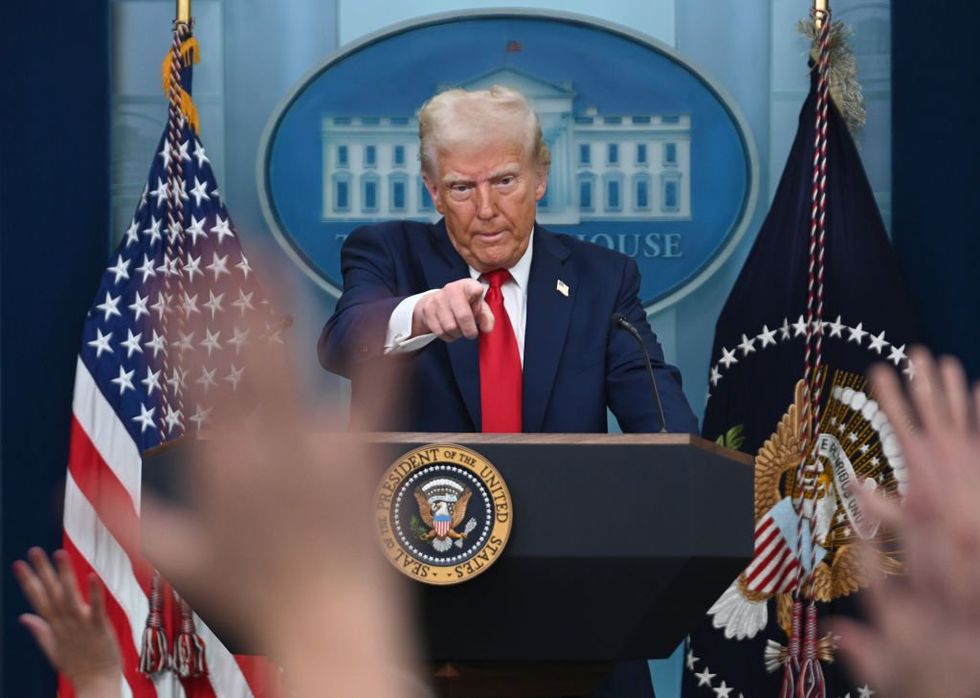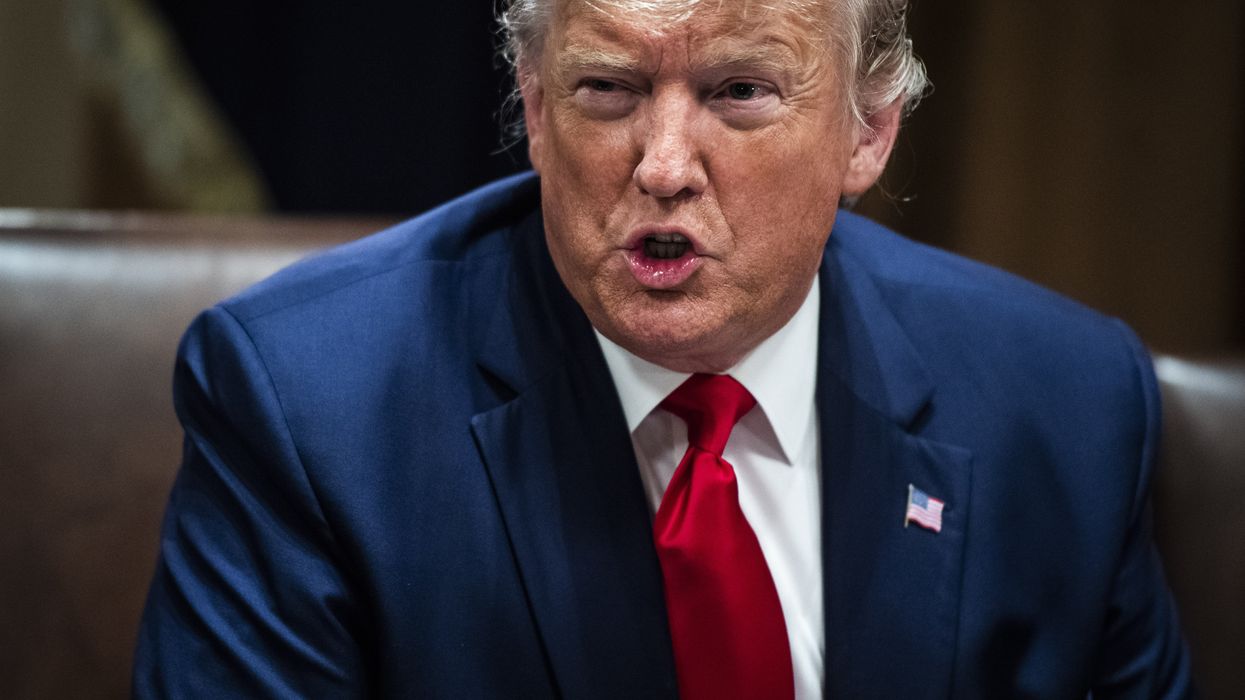President Donald Trump first became nationally famous on reality TV, and certainly, this has influenced his political style, described by some as “politainment,” the blending of entertainment with politics.
This week, that style was on full display in the White House briefing with Israel Prime Minister Benjamin Netanyahu when Trump announced he intends to relocate the Palestinian population from Gaza and turn it into “the Riviera of the Middle East.”
Really? Should we take this seriously? Did the President think this out beforehand, or was it pure political theatre?
Senator Tim Kaine (D-VA) immediately responded: "This proposal is deranged and nuts. U.S. military presence in the region would be a magnet for trouble."
But is this exactly the response that Trump wants to his political theater? "Political theatre" is a term used to describe performances, plays, or theatrical productions that explore, critique, or represent political themes and are designed to provoke thought, spark debate, and inspire social change.
While most political theatre is just that– theatre performed on stage, President Trump regularly uses his form of political theatre to shock, provoke, and surprise and, yes, to negotiate.
The President's background as a reality TV star has influenced his political style, blending politics with entertainment. Trump's rallies, social media posts, and dramatic statements often turn political events into spectacles that capture widespread public attention. The facts and the specifics of the policy don’t really matter.
And, of course, Trump's "politainment" angers many who believe he is being serious and, of course, delights his supporters.
We have four more years of Trump “politainment” so distinguishing between the political theatre and serious proposals will be a challenge for us all, both politically and emotionally.......and a challenge for Democrats as they try to figure out how to respond.
A few indicators can help us distinguish between Trump's theatre and fantasy and substantive policy and allow us to avoid taking off-the-hand comments too seriously. Before getting worked up, it is best to wait until Trump's comments are accompanied by detailed plans, legislative efforts, and some follow-through by his team. His statements that involved grand gestures and grandiose promises are just Trump's political theatre to rile us up.
President Trump loves positive or negative attention, and his political theatre generates headlines and daily commentary. His love for being in the spotlight and his politainment rise to the top at his rallies energizing his adoring fans as he discredits his opponents rather than boring them with serious policy
It’s the reaction, not the policy, that is his first goal.
But don’t be fooled. And oftentimes, Trump's statements are a blend...not all theatre and not all policy. A perfect example is his executive orders on immigration and border security, which have been seen as political theatre and serious proposals. While they generated significant media coverage and public reaction, their implementation and long-term impact have serious consequences, with some orders facing legal challenges and others being rolled back or modified. Unfortunately, some of his theatre becomes a harsh reality, impacting the lives of millions of people who are at the receiving end of his theatre.
And don’t forget that everything President Trump does is a negotiation, further adding to the difficulty of determining what he is serious about. Combine his passion for political theatre with his love of attention and his penchant for negotiating everything, and it is little wonder that no one quite knows how to respond.
The similarity between theatre and negotiating is profound..... drawing attention to issues with outlandish statements and bold claims has worked masterfully in pushing topics of importance to him to the forefront.
It doesn’t matter if it is shocking or appalling. He gets attention and puts the issue in the headlines. A perfect example is the press conference the morning after the Washington DC plane crash when the President claimed that DEI policies were the cause of the crash without a single piece of evidence. As families grieved and bodies still had not been recovered, Trump couldn’t restrain himself.
Trump's negotiating style combines dramatic actions and statements so outlandish that opponents are forced to respond, or at least think they are.
Thus, it is best to take a step back and not become the pawn as he makes outlandish statements to create the leverage he needs to win. If we allow it, Trump's political theatre will enhance his negotiating position, mobilize his supporters, and influence political discourse.
Undoubtedly, it’s all a tactic that leverages the power of media and public attention to achieve his strategic goals. As Trump dances on the edge of what many of us deem as normal, we will be the clowns for the next four years as the political circus unfolds before our eyes.
SUGGESTION: Don’t get distracted, stupid!
 U.S. President Donald Trump speaks about the mid-air crash between American Airlines and a military helicopter at the White House on January 30, 2025 in Washington, DC.
(Photo by Chen Mengtong/China News Service/VCG via Getty Images)
U.S. President Donald Trump speaks about the mid-air crash between American Airlines and a military helicopter at the White House on January 30, 2025 in Washington, DC.
(Photo by Chen Mengtong/China News Service/VCG via Getty Images)
David Nevins is co-publisher of The Fulcrum and co-founder and board chairman of the Bridge Alliance Education Fund.




















Trump & Hegseth gave Mark Kelly a huge 2028 gift